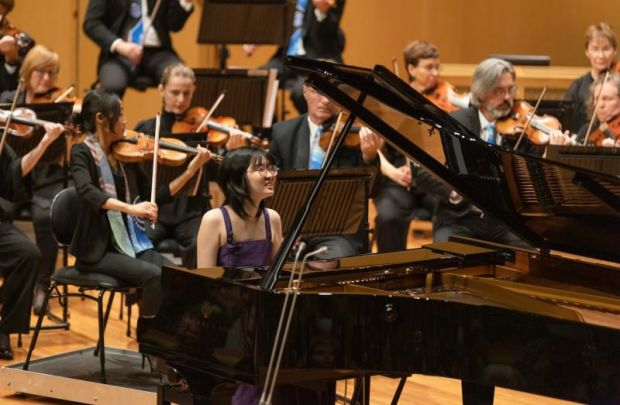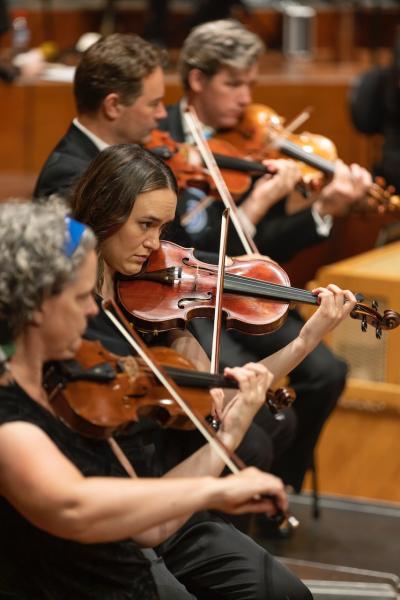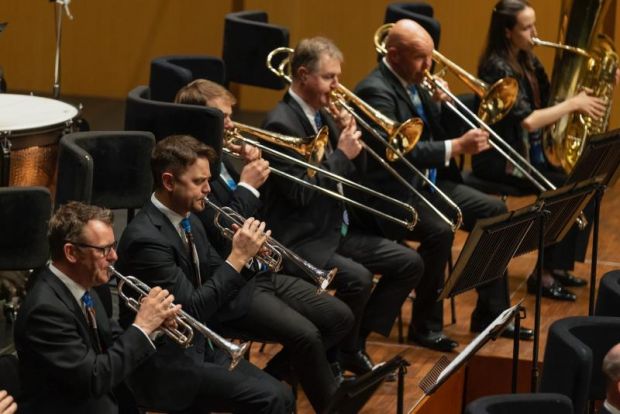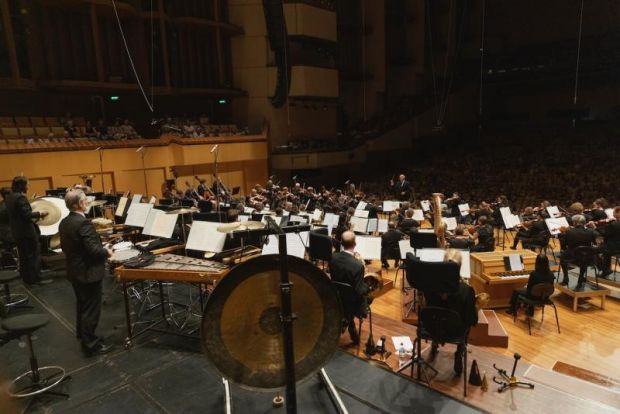Hymn to Mother Earth
As the world grapples with climate change and the United Nations calls for action to protect the world’s river systems, the members of the Queensland Symphony Orchestra turn to music to inspire critical thinking around the need to love and respect Mother Earth.
The QSO’s Music on Sunday series (which will replay through ABC Classic radio on April 14 at 1pm) appears at first glance as a flavoursome but light ‘high tea’ of music appreciation through the ages, supported by its time slot of 11.30am Sunday morning and a running time of around an hour, with witty interludes from revered host, Guy Noble, who will be claiming a flamingo costume as part of his work expenses at tax time this year.
While many of the longstanding supporters of this program love the Sunday series for just this reason, the QSO’s Hymn to Mother Earth offers a more complex degustation menu for patrons seeking to be inspired by works spanning three centuries, from Mozart to Sculthorpe, encouraging all to view the world through the healing lens of music.
“… and perhaps encourage us to find our own hymns and connections with our land,” First violinist Brenda Sullivan says in the program’s printed introduction.

For those seeking nothing more than a musical ‘high tea’, the musical morning includes nine works in total, from Smetana’s 12-minute long The Moldau, from Ma vlast to the three-minute long Thunder and Lightning Polka from Johann Strauss Jr.
Host Guy Noble enters stage left, playing the consummate tour guide and gives his adoring fans just enough quips, anecdotes and random history notes to connect the dots, mask the ‘piano move’ and keep paying customers happy.
For my teenage companion, this was enough and the cellos mimicking the call of the didgeridoo in Peter Sculthorpe’s dynamic journey piece, From Uluru, was his musical highlight.
The last time I went to a ‘high tea’ morning was on Mother’s Day and I was surprised to find more substance and engaging content from the guest speaker at that event than I would ever have expected from a morning that began with champagne and orange juice served with Danish pastries.

It was heartening to find a similar depth to the QSO’s Music on Sunday concert, and conductor Johannes Fritzsch’s motivation behind his musical selection for his Hymn to Mother Earth is held within the program notes which are worth perusing prior to the concert’s commencement.
Two mighty rivers collide on their way to Prague in the opening work, Bedrich Smetana’s symphonic poem, The Moldau, from Ma Vlast, and the 72-member QSO fold their instruments into the maelstrom and merriment of life along the river banks. The work is ethereal and breathtaking, forging a strong emotional link to nature despite being composed half a world away.Much closer to home is Peter Sculthorpe’s From Uluru, which captures the sounds, colours and shapes of Australia’s red centre, using the unconventional canvas of a western orchestra.
Close your eyes for this one and you’re journeying from Kata Tjuta to Uluru underscored by a steady didgeridoo ‘hearthbeat’, except it’s not a didgeridoo, it’s Sculthorpe’s favourite instrument, the cello, in perfect imitation.

Next comes a storm brewing off the coast of East Anglia in Benjamin Britten’s Storm, one of the Four Sea Interludes from Britten’s first opera, Peter Grimes and a reminder of nature’s fury.
“That always makes me feel a bit nervous,” Guy Noble says afterward. “It’s an excellent number but they don’t play that as you get on the cruise ships do they!”
This is followed by Autumn from Russian composer Alexander Glazunov’s The Seasons, a work he composed in 1900. The orchestra’s decision to skip over the petit adagio in the work due to time constraints serves to inadvertently mimic the way that milder seasons are being expedited due to climate change.
A composer whose own season on Earth lasted no more than 24 years due to Crohn’s disease, is Lili Boulanger, and her work, Of a Spring Morning was one of her last before she died in 1918. With fleeting, catch-them-if-you-can solos for violin and cello, the orchestra is fully committed to this joyous melody.
Guy Noble then takes Johannes Fritzsch to the side of the stage for a brief Q and A about nature and the earth and the creatures and seasons that have inspired the Music on Sunday concert, while a grand piano is wheeled onto the QPAC Concert Hall stage in preparation to welcome Australian pianist Hannah Shin.
Fresh from her winning performance in the Lev Vlassenko Piano competition held in Brisbane last year, Ms Shin joins the orchestra’s celebration of spring with a playful interpretation of Wolfgang Amadeus Mozart’s Allegro from his final Concerto No. 27 in B Flat for piano and orchestra.
While some in the audience listen to this work with their eyes closed, those keenly focused on the young pianist see a woman who throws her whole body into the performance.

Mr Noble follows this with a whole body performance of his own, entering stage left in a flamingo costume before announcing the final works in the concert: two movements from Ottorino Respighi’s The Birds, followed by Moonlight Music from Capriccio by Richard Strauss and the Thunder and Lightning Polka from Johann Strauss II."The QSO’s Hymn to Mother Earth is dynamic and diverse, full of respect for the elements, awe for nature’s power, hope for the seasons and a promise to take nothing for granted.
With the international doomsday clock now set at 90 seconds to midnight, the world could use more of the QSO’s harmony right now.
Debra Bela
Subscribe to our E-Newsletter, buy our latest print edition or find a Performing Arts book at Book Nook.

